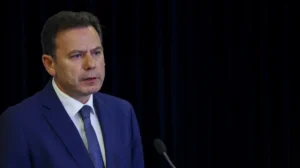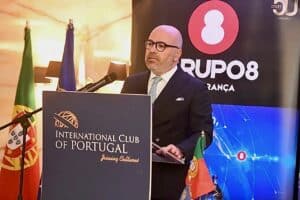“Very positive” for the national tourism sector
Portugal’s Tourism Confederation (CTP) has hailed the new 60-measure package announced by the government last week, describing it as “very positive” for the national tourism sector.
In a statement to the press, the CTP boss Francisco Calheiros underlined that these measures “strategically focus on the tourism sector” and acknowledge its “fundamental importance” to the national economy.
Calheiros mentioned some of the specific measures that CTP has welcomed “with open arms”, such as the progressive reduction of corporate income tax (IRC), the revision of SIFIDE II (a tax incentive system for business R&D), the revision of goodwill (intangible assets), the redefinition of small Midcap and Midcap companies, the launch of a new tourism strategy, the strengthening of digitalisation in tourism, the development of a plan for environmental and climate sustainability in tourism, the restructuring of the tourism training model, and a programme to integrate migrants into the tourism industry.
The confederation also says it was preparing to propose some of the measures announced by the government, meaning that the “government listened to many of the proposals CTP has been pitching over the years.” However, Francisco Calheiros said that the government cannot let the implementation of these measures drag on for too long, like it has with the issue of the “new airport”.
The government’s new ‘Accelerate the Economy – Growth, Competitiveness, Internationalisation, Innovation and Sustainability’ programme also includes the revision and reinforcement of several credit lines for tourism, such as the Linha + Interior (+ Interior Tourism Line), which aims to support the “sustainable tourism development” of inland territories, with an allocation of €10 million.
A major €50 million line of credit called Linha + Turismo Sustentável (+ Sustainable Tourism Line) was also announced, designed to motivate tourism companies to implement ESG principles (standing for Environmental, Social, and Corporate Governance), a set of standards for a company’s operations that investors use to screen potential investments and to help evaluate and understand the environmental and social impacts of their activities.
Another €10 million credit line was created with the launch of the Programa Turismo + Próximo e de Fomento do Comércio de Proximidade (Closer Tourism Programme and the Promotion of Proximity Trade), designed to support projects of a public or private nature “which demonstrate a close and positive impact on local communities, and which have the capacity to demonstrate the potential of tourism as a factor for inclusion and social cohesion”.
The government has also strengthened a €300 million credit line for tourism companies, named ‘Linha de Apoio à Qualificação da Oferta Turística’ (Support Line for the Qualification of Tourist Offerings) and created to help tourism companies invest in the “requalification, expansion, adaptation, and repositioning” of what they have to offer.
For sector digitalisation, €10 million will go to the Territories and Intelligent Mobility in Tourism Programme, another €10 million to the Tourism + Digital Programme, €6 million for an international campaign promoting Portuguese destinations, and €5 million for the internationalisation of Portuguese companies.
Meanwhile, the Revive Património Programme will be formalised by a legal decree to recover public heritage sites for tourism.
The economic acceleration plan also includes creating an international training campus and strategic partnerships for Hotel and Tourism Schools within the Community of Portuguese Language Countries (CPLP).




















